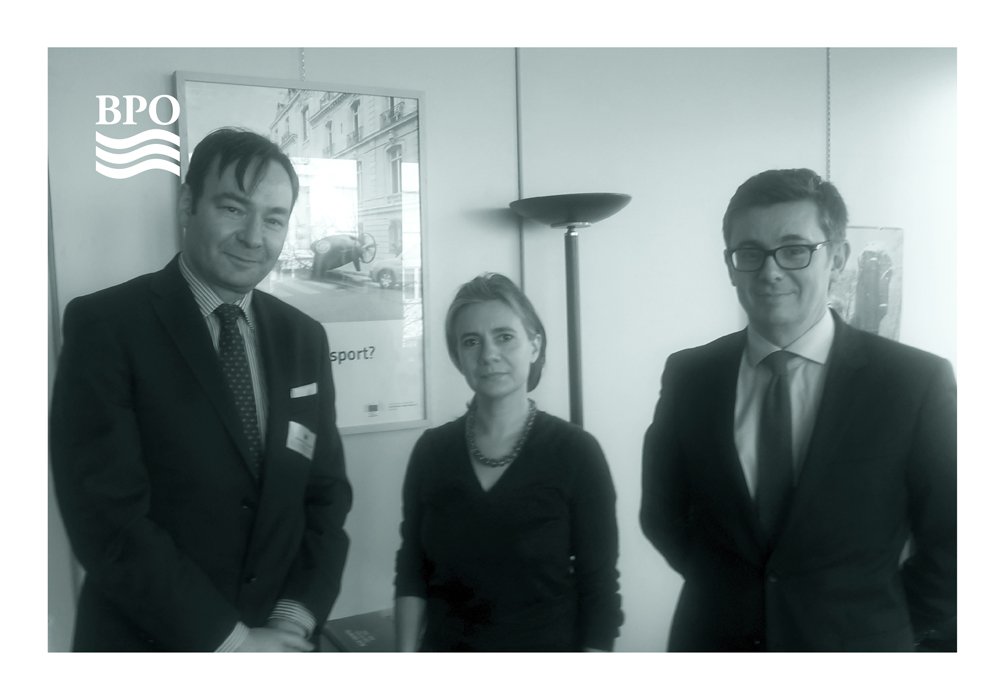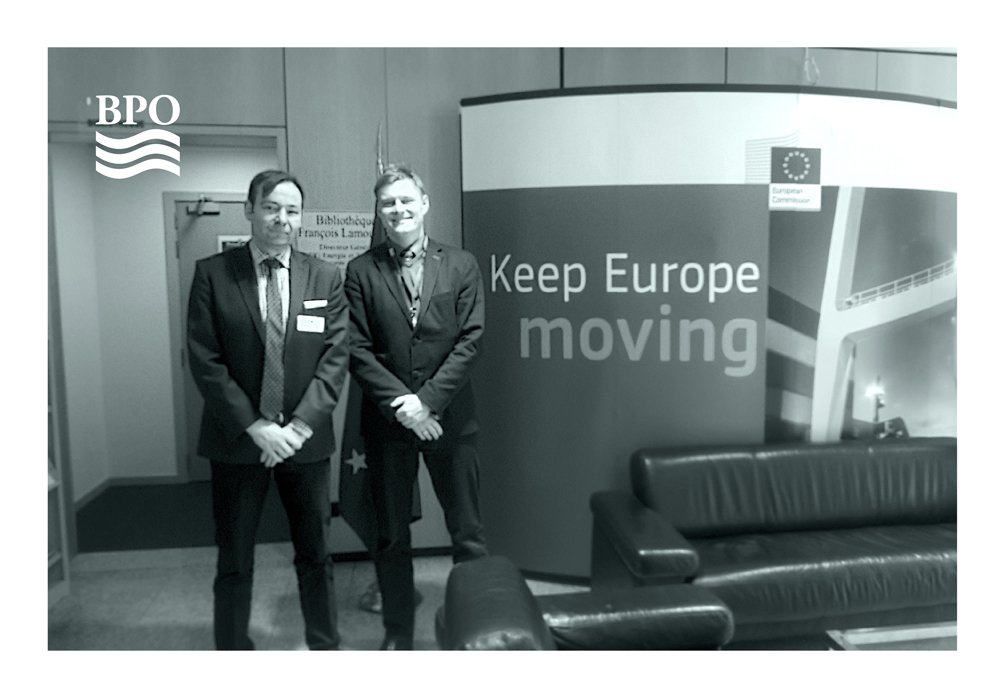BPO meets with DG MOVE
This week saw the BPO Secretary General, Bogdan Ołdakowski, attend a series of meetings with representatives of the Directorate General for Mobility and Transport (DG MOVE) – Daniela Rosca, Head of Unit Ports & Inland Navigation and Remy Mayet, the Unit’s Deputy Head, as well as Wojciech Sopiński, Policy Coordinator for Motorways of the Sea (MoS). Topics discussed included port policy as well as maritime regulations in the Baltic region and their effects. Revision of TEN-T policy and CEF funding distribution were also discussed.
 One of key issues for Baltic ports is learning how the European Commission (EC) is planning to review the TEN-T Policy and CEF funding allocation within the recent (2014-2020) and next (2021-2027) financial periods. Bogdan Ołdakowski presented the port market in the region as well as the specific features of the maritime transport in the Baltic Sea, including regulations regime, ice conditions and the impact of land transport infrastructure projects on port development. He underlined that, due to policies in EU cohesion countries, priorities were given to rail projects, so only a few MoS projects have been proposed for CEF grants.
One of key issues for Baltic ports is learning how the European Commission (EC) is planning to review the TEN-T Policy and CEF funding allocation within the recent (2014-2020) and next (2021-2027) financial periods. Bogdan Ołdakowski presented the port market in the region as well as the specific features of the maritime transport in the Baltic Sea, including regulations regime, ice conditions and the impact of land transport infrastructure projects on port development. He underlined that, due to policies in EU cohesion countries, priorities were given to rail projects, so only a few MoS projects have been proposed for CEF grants.
Bogdan Ołdakowski said: “In the next round of CEF calls, the European Commission and the ministries in EU states should work tightly together regarding the policy for the MoS program, so the money is distributed more equally among different modes of transport”.
The creation of the BPO Comprehensive Ports Working Group has also been mentioned as these ports need to have a dialogue with the EC on co-financing of port development.
Bogdan Ołdakowski also introduced the BPO policy promoting Baltic as a model region for green ports and maritime transport, which has been touched upon in the recently published BPO report. He presented a number of environmental regulations applied in the Baltic and Northern Europe, including SECA, NECA and requirements regarding the delivery of sewage from passenger ships at port reception facilities.
 As a consequence, Baltic ports and the whole maritime transport industry are highly experienced in meeting these regulations. The development of a network of ports with access to LNG bunkering services and facilities can be considered one of BPO’s key achievements in this regard. It established the Baltic as a world’s leading region in LNG bunkering.
As a consequence, Baltic ports and the whole maritime transport industry are highly experienced in meeting these regulations. The development of a network of ports with access to LNG bunkering services and facilities can be considered one of BPO’s key achievements in this regard. It established the Baltic as a world’s leading region in LNG bunkering.
The BPO is willing to work together with politicians, policy makers and industry partners to share these successes and Baltic standards, so that the same rules and regulations can be implemented in all of EU’s seas and ports.
Bogdan Ołdakowski said: „BPO’s aim is to present our arguments towards the European Commission and other EU bodies, as we are of the opinion that the same rules should be applied in all of Europe in order to avoid the distortion of competition”.
The BPO is holding a debate at the European Parliament, dedicated to the topic of “Baltic ports in TEN-T network – meeting the future”. The debate is set for March 22, 2017.
![Baltic Ports Organization]](/assets/template/img/bpo/logo.png)